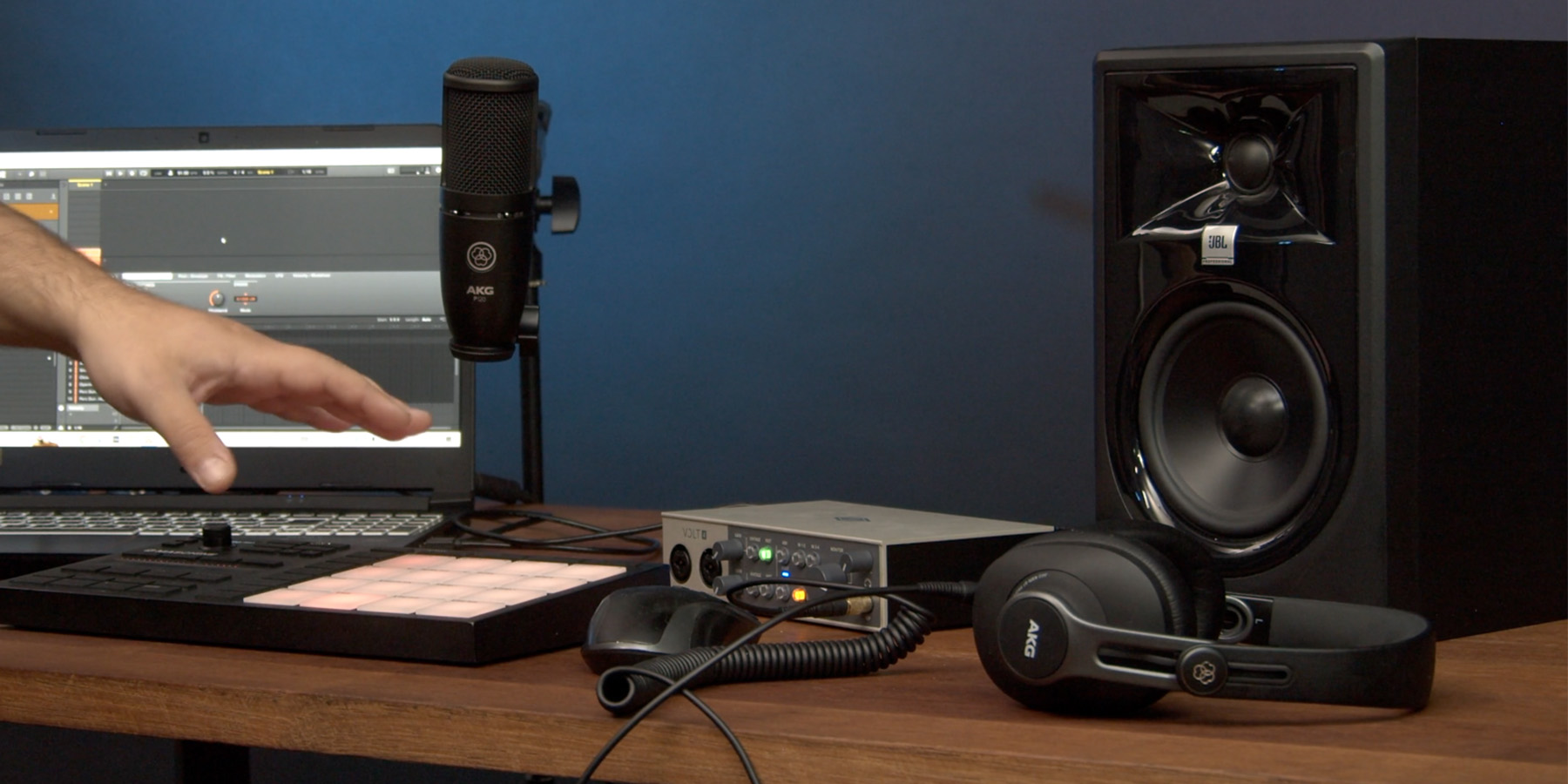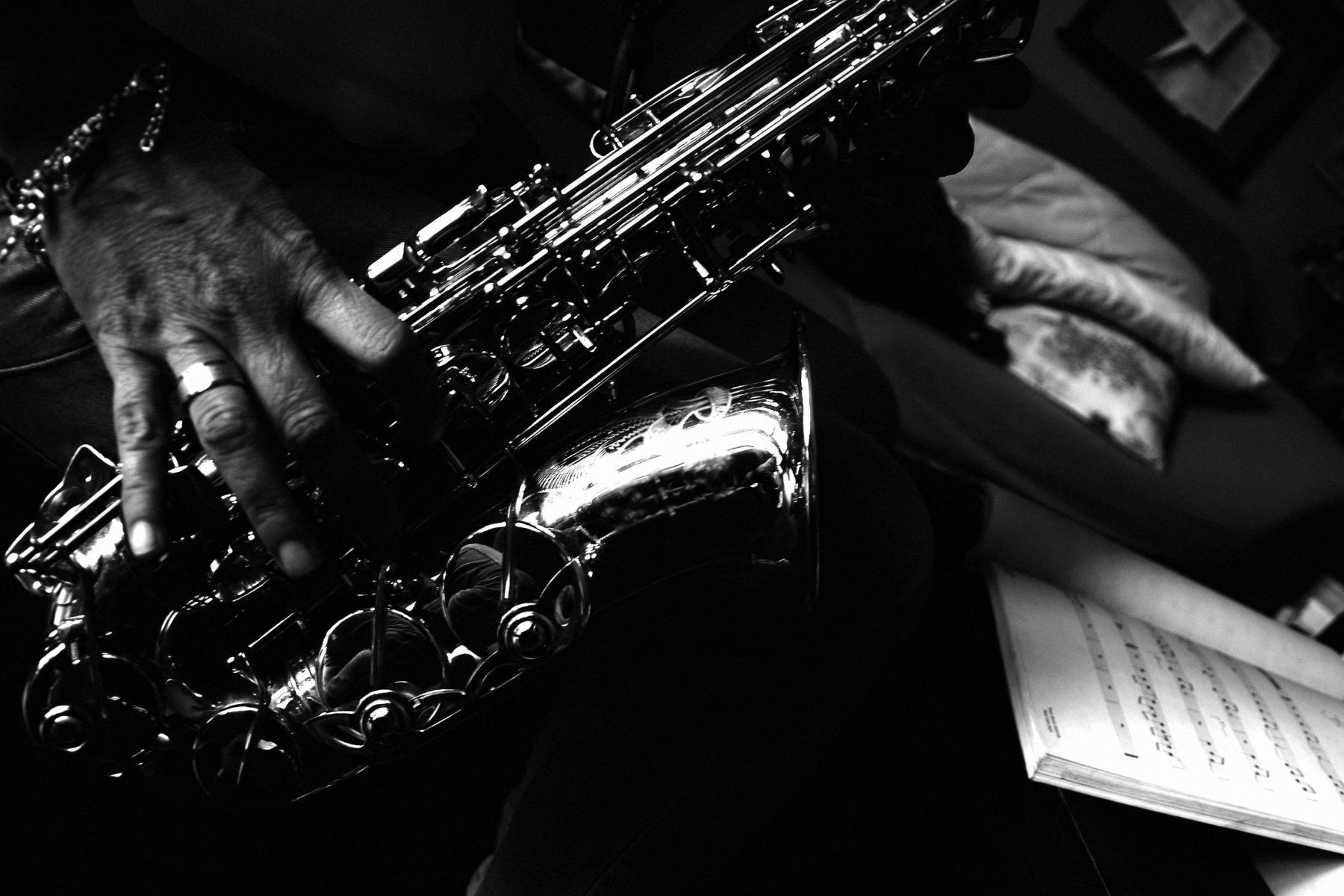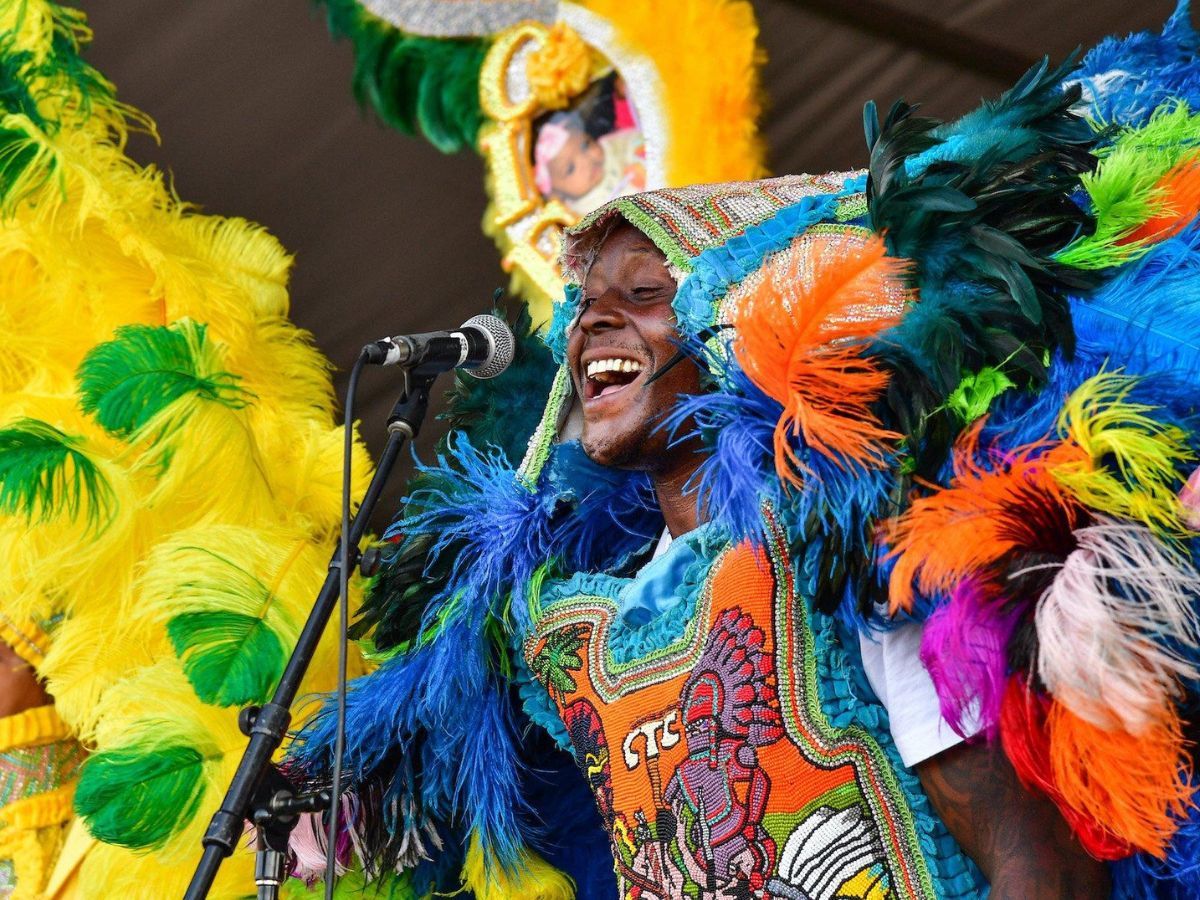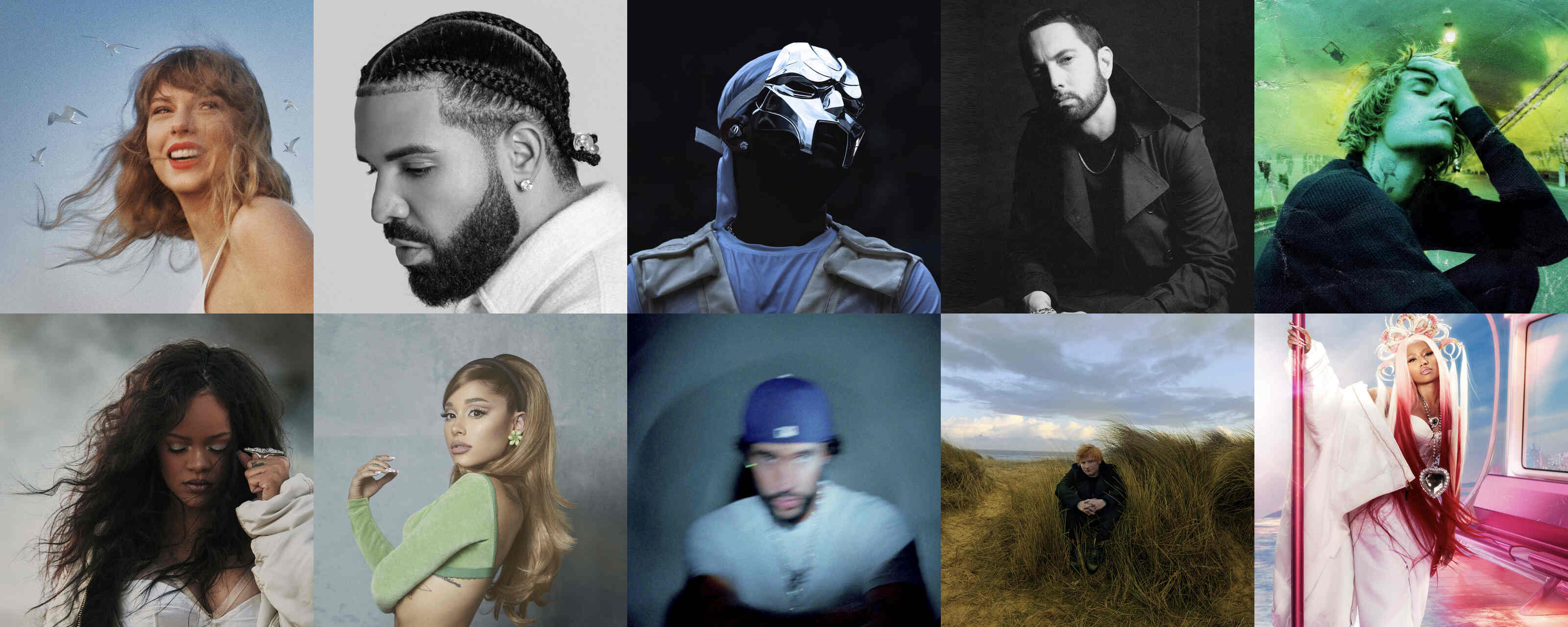

Hip Hop
What Are The Most Popular Hip Hop Songs
Modified: January 22, 2024
Discover the hottest and most popular Hip Hop songs that are dominating the music charts and playlists. Stay updated with the latest hits in the Hip Hop genre.
(Many of the links in this article redirect to a specific reviewed product. Your purchase of these products through affiliate links helps to generate commission for AudioLover.com, at no extra cost. Learn more)
Table of Contents
- Introduction
- Historical Background of Hip Hop
- The Influence of Hip Hop Songs
- Factors That Contribute to a Song’s Popularity
- Analyzing the Most Popular Hip Hop Songs of All Time
- Top 10 Most Popular Hip Hop Songs
- Artists Who Have Dominated the Hip Hop Charts
- The Evolution of Hip Hop Music
- Impact of Streaming Platforms on Hip Hop’s Popularity
- Conclusion
Introduction
Hip hop has quickly become one of the most influential and beloved music genres in the world. Its unique blend of rhythm, poetry, and storytelling has captivated listeners for decades. From the streets of New York City in the 1970s to global stages today, hip hop has evolved and grown, pushing boundaries and challenging societal norms.
What sets hip hop apart from other genres is its ability to resonate with diverse audiences. Its messages of empowerment, struggle, and triumph have found their way into the hearts of people from all walks of life. Hip hop songs have become anthems for the young and old, connecting generations through shared experiences.
In this article, we will delve into the world of hip hop and explore the most popular hip hop songs of all time. We will examine the historical background of hip hop, the factors that contribute to a song’s popularity, and the artists who have dominated the hip hop charts. Additionally, we will analyze the evolution of hip hop music and the impact of streaming platforms on its popularity.
Whether you’re a lifelong hip hop fan or just curious about the genre, this article will provide you with an in-depth understanding of what makes a hip hop song popular. We will take a journey through the history of hip hop, highlighting iconic songs and artists along the way. So, get ready to immerse yourself in the world of hip hop and discover some of the most influential songs that have shaped the genre.
Historical Background of Hip Hop
Hip hop originated in the Bronx, New York City, in the 1970s. It was born out of the creativity and resilience of African American and Caribbean communities facing economic struggles and social inequality. Hip hop’s roots can be traced back to block parties where DJs played records and MCs (masters of ceremonies) would perform improvised rhymes over the beats.
The four main elements of hip hop culture are DJing, MCing, breakdancing, and graffiti art. DJ Kool Herc, known as the “Father of Hip Hop,” played a pivotal role in shaping the genre’s early sound. He pioneered the technique of “breakbeat” DJing, where he looped and extended the instrumental breaks in funk and soul records to create longer dance-friendly sections. This laid the foundation for the rhythmic backbone of hip hop.
As hip hop gained popularity, MCs began to develop their lyrical skills and engage the crowd with their charismatic performances. Grandmaster Flash, Run-D.M.C., and Public Enemy are just a few of the early MCs who established the art of MCing in hip hop.
Breakdancing, also known as b-boying or b-girling, emerged as a dynamic and acrobatic form of dance that showcased incredible athleticism and creativity. It became an integral part of hip hop culture, with its intricate moves and energetic performances capturing the attention of audiences around the world.
Graffiti art, often seen as an expression of social and political commentary, became another prominent element of hip hop culture. Spray-painted murals and intricate tags adorned the walls of New York City, serving as visual representations of the hip hop movement.
Throughout the 1980s, hip hop continued to grow in popularity, with acts like Run-D.M.C., LL Cool J, and Beastie Boys crossing over into the mainstream. They brought hip hop to a wider audience and paved the way for the genre’s commercial success in the years to come.
The Golden Age of hip hop, which spanned the late 1980s to the early 1990s, saw the emergence of iconic artists such as Tupac Shakur, The Notorious B.I.G., and Snoop Dogg. Their music tackled social issues, celebrated individuality, and reflected the realities of life in marginalized communities.
Since then, hip hop has continued to evolve and diversify, incorporating various subgenres and musical influences. It has become a global phenomenon, with artists from all corners of the world embracing the genre’s rhythm, flow, and storytelling.
Understanding the historical background of hip hop is crucial to appreciate the significance of its most popular songs. It provides a context for the artistic and cultural developments that shaped the genre and continue to influence its present-day creations.
The Influence of Hip Hop Songs
Hip hop songs have had a profound influence on music, culture, and society as a whole. They serve as a powerful platform for artists to express their thoughts, experiences, and social commentary. Here are some of the ways hip hop songs have made an impact:
- Artistic Expression: Hip hop songs are a form of artistic expression that allows artists to share their stories and perspectives. Through their lyrics and music, they provide a voice for the marginalized, challenging societal norms, and shedding light on important issues.
- Social Commentary: Hip hop songs often tackle social and political issues, addressing topics such as racism, police brutality, poverty, and inequality. They provide a platform for artists to raise awareness and initiate conversations about these crucial matters.
- Cultural Identity: Hip hop songs are deeply rooted in the experiences and cultural identities of the communities from which they originate. They celebrate diversity, promote inclusivity, and empower individuals to embrace their heritage.
- Youth Empowerment: Hip hop has become a voice for the youth, resonating with their struggles, aspirations, and dreams. It has given young people a sense of empowerment and provided an avenue for artistic expression, creativity, and self-confidence.
- Global Influence: Hip hop has transcended geographical boundaries, spreading its influence to all corners of the world. It has inspired artists from different cultures and backgrounds to incorporate hip hop elements into their own music, creating a vibrant and diverse global hip hop community.
- Fashion and Style: Hip hop songs have had a significant impact on fashion and style trends. From baggy clothes and sneakers to the bling culture and urban streetwear, hip hop has influenced fashion choices and become a symbol of self-expression.
- Educational Tool: Hip hop songs have been used as an educational tool to engage and inspire young people in classrooms. The poetic nature of the lyrics and the storytelling aspect of hip hop make it an effective medium for teaching history, social issues, and language arts.
The influence of hip hop songs extends beyond the music itself. It has shaped various aspects of popular culture, including film, television, advertising, and even politics. Artists like Jay-Z, Kendrick Lamar, and Cardi B have used their platforms to advocate for social change and have made a lasting impact on society.
By blending artistry, storytelling, and social consciousness, hip hop songs continue to challenge norms, break barriers, and inspire change. They have become an integral part of our cultural landscape, leaving a lasting impact on generations to come.
Factors That Contribute to a Song’s Popularity
When it comes to determining the popularity of a hip hop song, several factors come into play. These factors can vary, but there are some common elements that contribute to a song’s appeal and success. Here are a few key factors:
- Catchy Hooks and Memorable Choruses: A strong and catchy hook or chorus is often what draws listeners in and keeps them coming back for more. It’s the part of the song that people remember and can easily sing along to. Whether it’s a catchy melody, a clever wordplay, or a memorable rhyme scheme, a strong hook or chorus can make a song instantly recognizable and enjoyable.
- Engaging Lyrics and Storytelling: The quality of the lyrics and the storytelling ability of the artist play a significant role in a song’s popularity. Listeners connect with songs that tell relatable and compelling stories, whether it’s about personal experiences, social issues, or simply capturing emotions in a meaningful way. Thought-provoking lyrics, clever wordplay, and impactful storytelling can make a song resonate deeply with audiences.
- Catchy Melodies and Beats: The musicality of a hip hop song plays a vital role in its popularity. Catchy melodies and infectious beats can get people moving and create a memorable listening experience. The production quality, choice of instruments, and overall sound of the song contribute to its appeal and determine if listeners will be drawn to it.
- Viral and Cultural Relevance: In the age of social media, viral and cultural relevance can skyrocket a song to popularity. Whether it’s a dance challenge, a catchy phrase, or a cultural moment that the song captures, these elements can make a song go viral and gain widespread attention. The ability to resonate with current trends and capture the spirit of the times can propel a song to the top of the charts.
- Marketing and Promotion: Effective marketing and promotion strategies can significantly contribute to a song’s popularity. The right marketing campaigns, strategic collaborations, and well-planned release strategies can create buzz around a song and generate anticipation. The involvement of influential figures in the industry, media coverage, and exposure on streaming platforms and radio can also boost a song’s visibility and audience reach.
- Artist’s Reputation and Fan Base: The reputation and fan base of the artist also play a role in a song’s popularity. Established artists with a loyal fan base often have built-in support and a ready audience for their new releases. Additionally, an artist’s brand, image, and persona can contribute to the overall appeal of a song.
It’s important to note that while these factors can contribute to a song’s initial popularity, the longevity and lasting impact of a hip hop song often depend on its quality, cultural relevance, and ability to connect with listeners on a deeper level.
Understanding the factors that contribute to a song’s popularity can provide insights into the music industry and the dynamics of hip hop as a genre. It showcases the intricate balance between artistic expression, marketability, and audience engagement that artists and industry professionals navigate to create successful and influential hip hop songs.
Analyzing the Most Popular Hip Hop Songs of All Time
As hip hop has evolved and gained mainstream popularity, numerous songs have emerged as iconic and influential within the genre. Analyzing the most popular hip hop songs of all time provides valuable insights into the factors that contribute to their success and enduring appeal.
One key aspect of analyzing popular hip hop songs is looking at their chart performance. The songs that have topped the charts, such as “Old Town Road” by Lil Nas X or “God’s Plan” by Drake, have not only resonated with listeners but also achieved massive commercial success. These songs often incorporate catchy melodies, relatable lyrics, and captivating production that appeal to a broad audience.
Another factor to consider is cultural impact. Some hip hop songs have become anthems of their time, capturing the spirit and experiences of a generation. For example, Public Enemy’s “Fight the Power” became a rallying cry for the civil rights movement, while N.W.A’s “Straight Outta Compton” shed light on the realities of life in marginalized communities. These songs transcended the music itself and became symbols of social and political movements.
The rhyme schemes and lyrical prowess of hip hop songs are also worth analyzing. Songs like Eminem’s “Lose Yourself” or Kendrick Lamar’s “Alright” are revered for their intricate wordplay and thought-provoking lyrics. These songs showcase the storytelling abilities of the artists and their ability to connect with listeners on a deeper level.
In addition, collaborations between artists have played a significant role in the popularity of hip hop songs. Collaborations often bring together different styles and fan bases, broadening the reach and appeal of a song. Examples include “Empire State of Mind” by Jay-Z featuring Alicia Keys and “Closer” by The Chainsmokers featuring Halsey, which incorporated hip hop elements into their respective genres.
Furthermore, the role of music videos cannot be overlooked. Many hip hop songs have achieved immense popularity due to their visually stunning and narrative-driven music videos. Artists like Missy Elliott and Kanye West are known for their visually inventive and boundary-pushing music videos that have become works of art in their own right.
Lastly, the impact of streaming platforms on the popularity of hip hop songs cannot be underestimated. Online streaming services have revolutionized the way we consume music, allowing for easy access and discovery of new songs. Artists like Cardi B and Lil Uzi Vert have gained popularity and a dedicated fan base through their online presence and streaming success.
By analyzing the most popular hip hop songs of all time, we can gain insights into the ingredients that make a hip hop song resonate with listeners. It’s a dynamic interplay between chart success, cultural impact, lyrical prowess, collaborations, music videos, and the influence of streaming platforms that contributes to the enduring popularity of these influential songs.
Top 10 Most Popular Hip Hop Songs
Choosing the top 10 most popular hip hop songs is no easy task, given the vast array of influential and chart-topping tracks that the genre has produced over the years. However, the following songs have undeniably left a lasting impact on hip hop culture and have achieved widespread success:
- “Juicy” – The Notorious B.I.G.: This iconic track from the legendary Notorious B.I.G. showcases his storytelling abilities and lyrical prowess. Its catchy chorus and smooth production have made it a timeless hip hop anthem.
- “Lose Yourself” – Eminem: Eminem’s “Lose Yourself” became an instant classic. Its emotional and introspective lyrics, combined with Eminem’s energetic delivery, make it not only one of the most popular hip hop songs but also one of the most inspirational.
- “Nuthin’ But a ‘G’ Thang” – Dr. Dre feat. Snoop Dogg: This collaboration between Dr. Dre and Snoop Dogg exemplifies the West Coast sound of the 90s. Its laid-back vibe, memorable chorus, and iconic G-funk production are etched into the history of hip hop.
- “Empire State of Mind” – Jay-Z feat. Alicia Keys: Jay-Z and Alicia Keys created an anthem for New York City with “Empire State of Mind.” This song captures the essence of the city, with its infectious melody and heartfelt lyrics paying homage to the Big Apple.
- “Stan” – Eminem feat. Dido: “Stan” is a thought-provoking and emotionally charged track that explores the dark side of fandom. Eminem’s raw storytelling and intricate rhymes combined with Dido’s haunting vocals have made it an unforgettable hip hop classic.
- “Hotline Bling” – Drake: Drake’s “Hotline Bling” dominated the charts and became a viral sensation. Its catchy and infectious melody, as well as Drake’s signature charismatic delivery, made it a pop-culture phenomenon.
- “Hey Ya!” – OutKast: OutKast’s “Hey Ya!” is a genre-bending song that blends hip hop with funk and pop elements. Its upbeat tempo, catchy chorus, and unique sound have made it an enduring party anthem.
- “Juice” – Lizzo: Lizzo’s “Juice” is a recent addition to the list but has quickly become a hip hop favorite. Its infectious energy, self-empowerment message, and Lizzo’s dynamic vocals have earned it a prominent place among the most popular hip hop songs.
- “HUMBLE.” – Kendrick Lamar: Kendrick Lamar’s “HUMBLE.” made a massive impact upon its release. Its hard-hitting lyrics, confident delivery, and hypnotic beat cemented Kendrick’s status as one of the most influential artists in contemporary hip hop.
- “Walk This Way” – Run-D.M.C. feat. Aerosmith: Run-D.M.C.’s collaboration with Aerosmith on “Walk This Way” was a groundbreaking moment in hip hop and rock history. By fusing their respective genres, they created a crossover hit that became a blueprint for future collaborations.
These top 10 most popular hip hop songs represent a diverse range of artists, eras, and styles within the genre. Each song holds a special place in hip hop history and has resonated with listeners worldwide, cementing them as enduring classics that continue to inspire and influence hip hop music today.
Artists Who Have Dominated the Hip Hop Charts
Hip hop has seen the rise of numerous talented artists who have not only achieved success but have also dominated the charts and made a lasting impact on the genre. These artists have consistently delivered hit after hit and have become household names in the world of hip hop. Here are a few artists who have undeniably left a mark on the hip hop charts:
- Jay-Z: With an illustrious career spanning decades, Jay-Z has established himself as one of the most influential and successful hip hop artists of all time. From his early albums like “Reasonable Doubt” to his more recent releases like “4:44,” Jay-Z has consistently topped the charts and showcased his lyrical prowess and business acumen.
- Eminem: Eminem’s unique blend of intricate wordplay, raw storytelling, and emotional intensity has made him a force to be reckoned with in the hip hop industry. With chart-topping albums like “The Marshall Mathers LP” and “Recovery,” Eminem has solidified his place as one of the best-selling hip hop artists in history.
- Drake: Drake’s ability to effortlessly switch between rap and R&B, combined with his introspective lyrics and infectious melodies, has contributed to his domination of the charts. Known for his numerous chart-topping hits like “God’s Plan” and “In My Feelings,” Drake has repeatedly shown his knack for creating catchy and relatable music.
- Kendrick Lamar: Kendrick Lamar’s thought-provoking and socially conscious lyrics, coupled with his innovative production, have earned him critical acclaim and chart success. Albums like “good kid, m.A.A.d city” and “To Pimp a Butterfly” have showcased his storytelling abilities and deep exploration of societal issues.
- Cardi B: Cardi B burst onto the hip hop scene with her breakout hit “Bodak Yellow” and has since become a dominant force in the genre. With her bold personality, charismatic delivery, and chart-topping singles like “I Like It,” Cardi B has quickly risen to fame and solidified her place as one of the leading female artists in hip hop.
- Travis Scott: Known for his atmospheric and genre-blending sound, Travis Scott has been a driving force in shaping the modern hip hop landscape. With albums like “ASTROWORLD” and hit singles like “SICKO MODE,” Scott’s experimental approach and captivating performances have propelled him to the top of the charts.
- Nicki Minaj: Nicki Minaj’s versatile delivery, clever wordplay, and larger-than-life persona have made her a standout artist in the hip hop industry. With hit songs like “Super Bass” and “Anaconda,” Minaj has displayed her ability to blend pop appeal with fierce rap skills, solidifying her status as one of the most successful female artists in hip hop.
These artists have consistently dominated the hip hop charts, releasing hit after hit and pushing the boundaries of the genre. Their unique styles, lyrical abilities, and cultural impact have made them household names, earning them a dedicated fan base and commercial success.
It’s important to recognize that the hip hop charts have seen the emergence of numerous other talented artists who have made significant contributions to the genre. From veteran acts like Kanye West and Lil Wayne to rising stars like Megan Thee Stallion and DaBaby, the hip hop charts continue to be a platform for diverse voices and talents to shine.
The Evolution of Hip Hop Music
Hip hop music has undergone a remarkable evolution since its inception in the 1970s. It has continuously pushed boundaries, incorporated various musical influences, and adapted to the changing cultural landscape. Understanding the evolution of hip hop music can provide a deeper appreciation for the genre’s diversity and resilience.
In its early days, hip hop was primarily characterized by its rhythmic beats and energetic performances at block parties and clubs. The use of breakbeats and funk samples formed the backbone of early hip hop songs, often accompanied by MCs engaging the crowd with their rhymes and lyrical improvisation.
In the 1980s and 1990s, hip hop underwent a golden age, marked by the emergence of iconic artists and innovative production techniques. Artists like Run-D.M.C., Public Enemy, and N.W.A. pushed boundaries with their socially and politically charged lyrics, addressing issues such as racism and police brutality.
The advent of sampling technology allowed producers to experiment with different genres and create new sonic landscapes. This led to the rise of East Coast and West Coast hip hop styles, each with distinct sounds and artistic approaches. East Coast artists like Nas and Wu-Tang Clan focused on intricate lyricism and storytelling, while West Coast artists like Dr. Dre and Snoop Dogg embraced a laid-back, G-funk sound.
In the late 1990s and early 2000s, hip hop embraced a more commercial and mainstream sound, with artists like Jay-Z, Eminem, and Missy Elliott dominating the charts. This era saw the emergence of catchy hooks, melodic choruses, and collaborations with pop artists, further blurring the lines between hip hop and other genres.
Furthermore, the 2000s witnessed the rise of Southern hip hop, with artists like Lil Wayne, OutKast, and T.I. introducing their unique styles and regional sounds to the mainstream. Southern hip hop incorporated elements of soul, funk, and blues, and brought a fresh and distinct flavor to the genre.
In recent years, hip hop has continued to evolve and diversify. Artists like Kendrick Lamar and J. Cole have pushed the boundaries of lyrical depth and social consciousness, highlighting the genre’s potential for storytelling and introspection. Furthermore, trap music, characterized by heavy basslines and rapid hi-hats, has gained significant popularity and prominence, with artists like Future and Migos leading the charge.
The evolution of hip hop music is a testament to its adaptability and resilience. It has not only reflected the cultural shifts and social issues of its time but also inspired new styles and influenced the broader music industry. From its humble beginnings in the Bronx to its global reach today, hip hop continues to shape and redefine popular music.
Impact of Streaming Platforms on Hip Hop’s Popularity
Streaming platforms have revolutionized the way people consume music, and their impact on the popularity of hip hop cannot be understated. These platforms, such as Spotify, Apple Music, and YouTube, have played a significant role in the exponential growth and global reach of hip hop music. Here are some of the ways streaming platforms have influenced the popularity of hip hop:
Increased Accessibility: Streaming platforms have made hip hop music readily accessible to a broader audience. With just a few clicks, music fans from around the world can discover and explore an extensive catalog of hip hop songs and albums. This ease of access has allowed hip hop to break down geographical barriers and reach listeners in every corner of the globe.
Discoverability and Recommendation Algorithms: Streaming platforms’ recommendation algorithms have become instrumental in introducing listeners to new hip hop artists and songs. These algorithms analyze users’ listening habits and preferences to suggest related music, leading to the discovery of artists and subgenres that listeners may not have encountered otherwise. This has allowed underground and independent hip hop artists to gain exposure and build a dedicated fan base.
Independent Artist Promotion: Prior to streaming platforms, independent hip hop artists faced significant barriers to reaching a wider audience. However, with the rise of platforms like SoundCloud and Bandcamp, independent artists have been able to release and distribute their music directly to their fans. Streaming platforms have provided a platform for independent artists to build a following, gain recognition, and even achieve mainstream success.
Playlist Culture: Playlist culture has become a dominant force in the streaming era. Curated playlists, such as RapCaviar on Spotify, have become influential taste-making platforms for hip hop. Being featured on popular playlists can significantly boost an artist’s visibility and popularity, leading to increased streams and exposure. These playlists have facilitated the discovery of new artists and have become a driving force behind the success of many hip hop songs.
Real-Time Data and Chart Impact: Streaming platforms provide real-time data on song streams and popularity, facilitating the measurement and recognition of a song’s success. This data is even reflected in the Billboard charts, with streaming numbers being a significant factor in determining chart rankings. As a result, hip hop’s dominance on streaming platforms directly translates into its dominance on the charts.
Cultural Impact and Viral Moments: Streaming platforms have given rise to viral hip hop moments that have had a lasting cultural impact. Whether it’s a dance challenge, a meme, or a viral video, these moments can propel an artist or a song to global fame. Streaming platforms provide a platform for these cultural moments to spread rapidly and significantly contribute to the popularity and exposure of hip hop.
Overall, streaming platforms have played a pivotal role in the rise and continued popularity of hip hop. They have made the genre more accessible, facilitated artist discovery, empowered independent artists, and provided real-time data that has reshaped the way we measure and recognize success in the music industry. As the streaming landscape continues to evolve, hip hop’s influence and prominence on these platforms are likely to grow even further.
Conclusion
Hip hop music has come a long way since its humble beginnings in the Bronx in the 1970s. It has become a global phenomenon, influencing popular culture, breaking down barriers, and empowering artists and listeners alike. The most popular hip hop songs reflect the genre’s ability to captivate audiences with catchy beats, powerful lyrics, and relatable stories.
Throughout its evolution, hip hop has shown remarkable resilience and adaptability. From the socially conscious messages of Public Enemy and the storytelling of Notorious B.I.G. to the genre-blending sounds of Travis Scott and the infectious energy of Cardi B, hip hop continues to push boundaries and redefine itself as an art form.
The influence of hip hop songs extends beyond the music itself. They have the power to provoke thought, spark conversations, and bring communities together. Hip hop has provided a platform for marginalized voices to be heard, celebrating diversity and speaking out against social injustices.
Streaming platforms have played a significant role in the genre’s popularity and accessibility. They have connected hip hop artists with global audiences, allowing independent musicians to find success and providing real-time data that reshapes the music industry. Artists like Drake and Jay-Z have dominated the charts, leveraging these platforms to bring their music to millions of listeners.
As hip hop continues to evolve, it remains an important cultural force, shaping the sound of popular music and reflecting the experiences of generations. The genre’s ability to adapt, innovate, and resonate with diverse audiences ensures its enduring influence in the years to come.
Whether you’re a long-time hip hop fan or new to the genre, exploring the most popular hip hop songs and understanding their impact offers a deeper appreciation for the genre’s artistic depth and cultural significance. So, turn up the volume, immerse yourself in the beats and lyrics, and let the world of hip hop take you on a journey of self-expression, empowerment, and boundless creativity.











